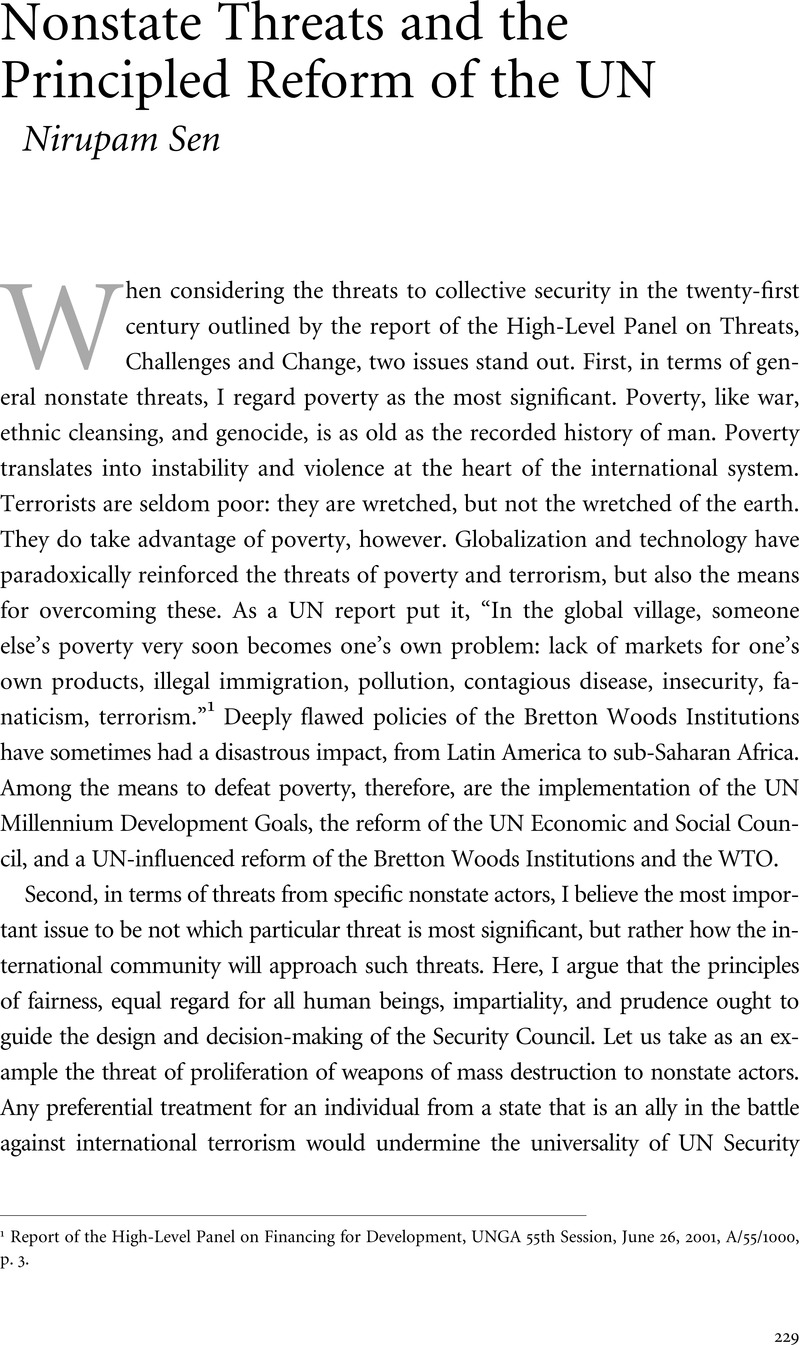Article contents
Nonstate Threats and the Principled Reform of the UN
Published online by Cambridge University Press: 25 March 2011
Abstract

- Type
- Roundtable
- Information
- Copyright
- Copyright © Carnegie Council for Ethics in International Affairs 2006
References
1 Report of the High-Level Panel on Financing for Development, UNGA 55th Session, June 26, 2001, A/55/1000, p. 3.
2 G.K. Chesterton, Queen of the Seven Swords (London: Sheed and Ward, 1944), pp. 7–8.
3 The Bhagavad Gita, trans. P. Lal (New Delhi: Lotus Collection, Roli Books, 2004), p. 65.
4 See Ibrahim Gambari, “Rwanda: An African Perspective,” in David Malone, ed., The UN Security Council (Boulder, Colo.: Lynne Rienner Publishers, 2004), p. 512.
5 Justice Fitzmaurice, Legal Consequences for States of the Continued Presence of South Africa in Namibia (South West Africa) Notwithstanding Security Council Resolution 276 (1970) Adv. Op., ICJ Rep (1971).
6 Under the statute, the ICJ is not bound by Litispendence, as demonstrated in the U.S. Hostages in Iran and the Aegean Continental Shelf cases.
- 1
- Cited by


